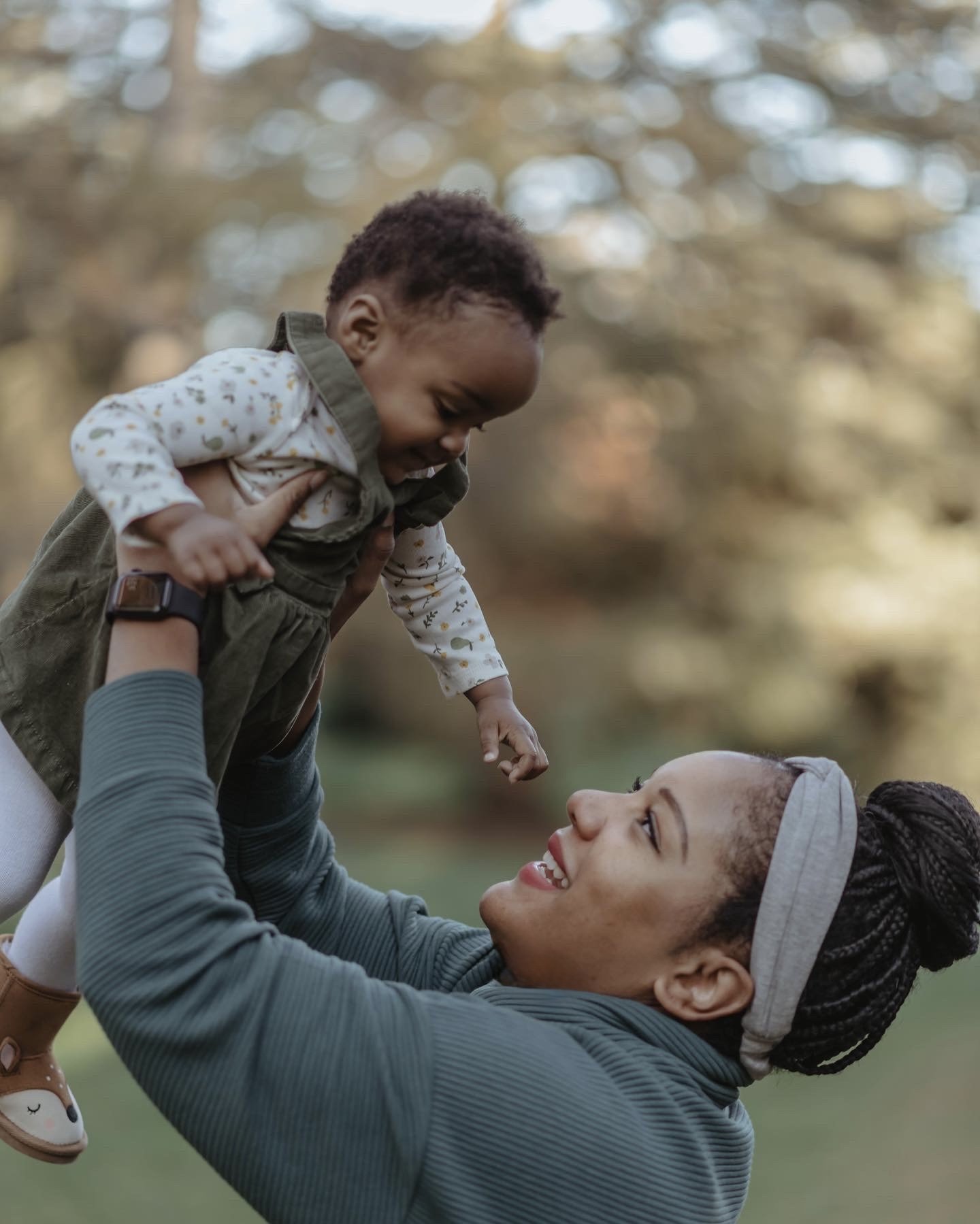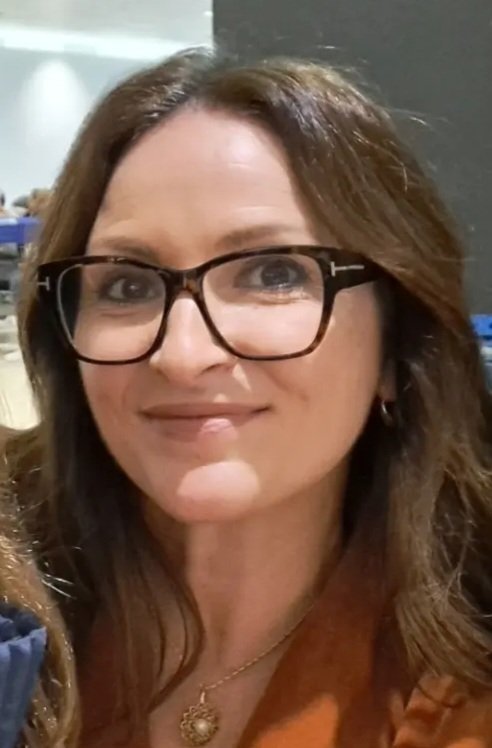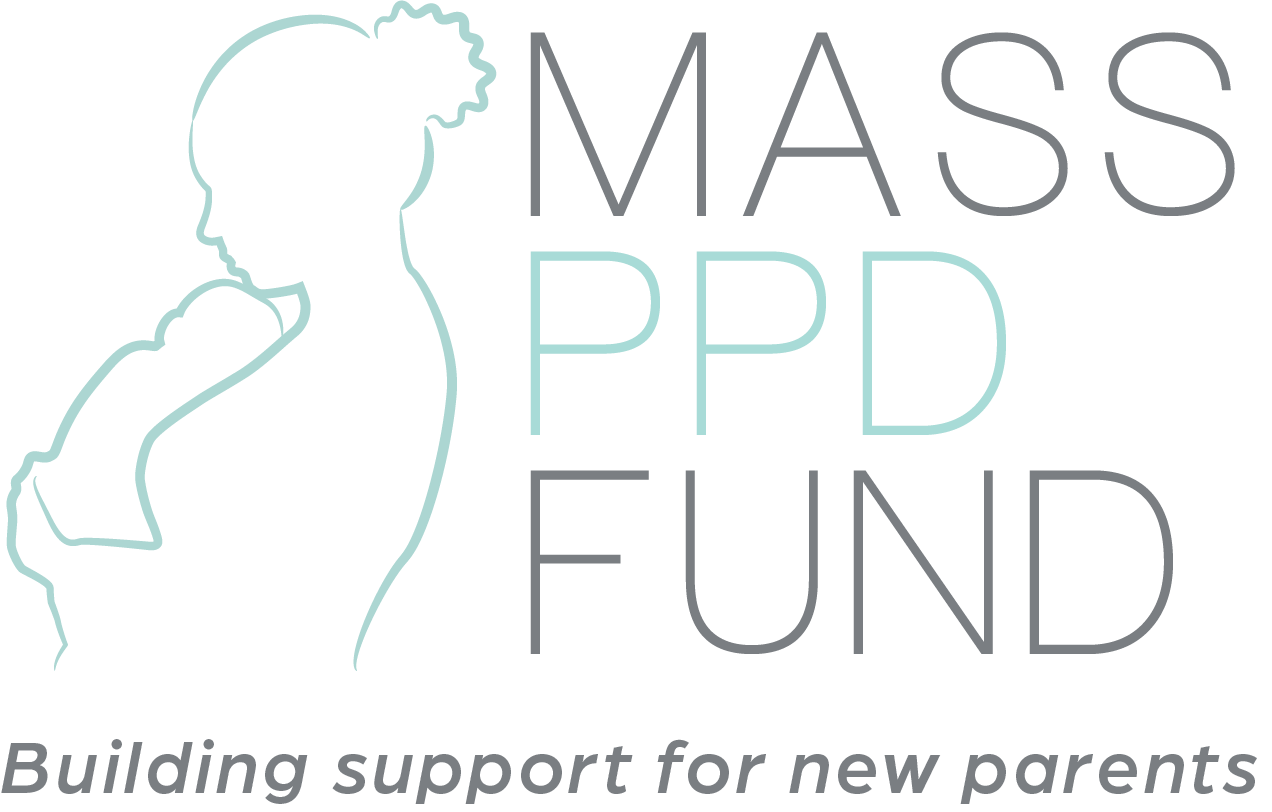
MAMA’s Mariah Sabir
“At the end of the day, MAMA’s vision is simple: no birthing person should ever have to navigate pregnancy or postpartum without support. I just think that's vital, especially because so many birthing people are dying, specifically people that look like me. And what's not being talked about are individuals that are dying due to PMADs, and that needs to be addressed as well.”

National Breastfeeding Month ‘25: Olympian Caryn Davies
“I was even a little anxious accepting donor milk, but just having a little bit to help [my baby] fill his belly and gain back some weight was super helpful. It made me feel so much more relaxed, and I was able to get some rest.”

Dads Facing Grief and Loss
“Men don’t share, men don't open up, that’s kind of the expectation. It’s not until you realize you really need the help, and you get to experience the safe space [in the bereaved dads’ group] that you decide, Oh yeah, it's okay for us to feel and grieve and start working through what we have to work through.” – Josh Betancourt

Bereaved Mother’s Day 2025
“Medical providers, take mom seriously when they have a concern. But also, offer the extra tests, offer the extra reassurance, because it's available and it's really wild how high infant mortality and maternal mortality is in this country. And then for the community at large, just say our babies’ names and remember that our grief didn't end just because we no longer look pregnant, or because we had another living child, or because we went to a party and seemed happy.” – Vero Gonzalez

Sarah Baroud, LICSW
“I would love if we all got annual mental health exams and screening. Just like we check on our physical health, we have lots of normal tests for that. And perinatal mental health care should be standard.”

Melanie Venuti
“Our job is to always support families on their level. I encourage families to keep me in the loop if they're feeling particularly overwhelmed, because we can always make changes to [their feeding goals], versus waiting for overwhelming feelings to fester and lead to darker thoughts. I think the biggest thing is really to just make sure that families understand that their goals are their goals, and your baby's going to love you no matter what. And I'll shout it from the rooftops: support, support, support! Just having somebody in your corner to support you is so important.”

Pregnancy and Infant Loss Awareness Month 2024: Elizabeth O’Donnell
“The root of Aaliyah in Action was needing to find meaning for myself post-loss. The mental health impact that this takes is huge. In full transparency, I needed a reason to keep being here. At the time, I did not know anybody that had had a stillbirth. [A] lot of my friends and family had sent me little self-care items because that's very much who I am. I found that using one or two items each day literally allowed me to feel something, when I felt so numb. I just wanted to extend that to absolutely anybody that is going back home, going back to work, going back to a society that feels so different than before this life-changing news.”

Mes de la Herencia Hispana 2024: Yamily Byas, de Mamás Unidas
“La necesidad de pañales es una lucha constante en nuestras comunidades, y necesitamos tener recursos disponibles para cuando las familias los necesiten… Si no hay pañales, los niños no pueden ir a la escuela o a la guardería, las familias no pueden ir a trabajar o buscar empleo. Yo quiero que las cosas sean más equitativas para todos.”

Hispanic Heritage Month 2024: Yamily Byas of Mamás Unidas
“Diaper need is a struggle in our communities, and we need things readily available for families when they need them. . . [N]ot having diapers, kids are not able to go to school or go to daycare, families are not able to work, or go out and find jobs. I want things to be more equal for everyone.”

Black Breastfeeding Week 2024: Dominique Bellegarde
“I believe in encouraging, empowering women, children, and families, especially during pregnancy and breastfeeding. Anyone I'm introduced to, I'm always making sure that they know about their body and the importance of who they are. That’s my calling, that’s how I serve families.”

BIPOC Mental Health Month 2024: Mandy Breaux
“I feel like everything before I became a mom, it's just textbook. When I became a mom myself [I realized]: one, nothing is as easy as the textbook says; and two, it's such a lonely period. I have my husband, I have family coming to visit, but I don't know what I'm doing. I don't even know what I need help with!”

Maternal Mental Health Month 2024: Kriti Lodha
“I had my own stigma against what I was going through, and I had so much shame. Like, How can my brain fail me? How could I be in this position? Now I recognize it was biology and circumstances and it was not on me. Yes, there are signs, but this can happen to anyone.”

Kerry McCarthy
“The despair and the anxiety set in immediately, and it never lessened. It never got better for years. I never got treatment. I never had a six-week postpartum checkup; I didn't put myself in front of a doctor for three years. I was one of the ones who slipped through the cracks.”

Women’s History Month 2024: Dr. Jeanne Watson Driscoll
“The experience of becoming a mother, pregnant and postpartum, is a holistic, environmental shift in your reality. It's not just hormones, it's everything. I would love for every woman to be pregnant and postpartum in a loving community. That she didn't have to ask for anything, that things were offered first.“

Black History Month 2024: Dr. Jallicia Jolly
“I would say my dream for true equity and justice for Black birthing people is to have access to the economic means, social protections, and structural and living conditions to give birth, live, and sustain themselves, being free of all forms of harm, including violence, inequality, and coercion.
When you think of mental health, it's the cumulative experiences that build up over time, that devalue your body, your mind, and your needs. And it is reinforced by systems and individuals that perpetuate a belief that your needs do not matter as much. The vision of what it means to birth with joy, and to access care -- where health equity is an actual standard of care – is not our current reality. “

Emily Silver
“My business partner Jamie and I worked as labor and delivery nurses at a Boston hospital, and we were always wondering, What is going on out there? It felt like this giant gap of all of this support and help in the hospital, and then, bam, they’re sending you down the elevator with your car seat, and you go home and nobody’s there! If you look at other countries, [postpartum support] is actually built into their health care models. I hope that through our NAPS programming, we can eventually reshape how we think about perinatal healthcare.”

Tiffany Vassell
“My goal and my vision is to have BIPOC be treated more equitably, and to be listened to, to actually be heard when they are delivering their babies. Far too often, your requests aren't heard, and you're treated like you don't know what you're talking about. It sets people up for failure and for traumatic experiences that have a domino effect in the postpartum period, and can lead to postpartum depression, anxiety, and other perinatal mood disorders.”

Dr. Rose Molina
“We really need to expand the behavioral health workforce with particular attention to racial, ethnic, and linguistic diversity so that people feel comfortable seeing their mental health provider. Mental health is often stigmatized in many places, cultures, and families, so it takes a lot for people to come forward with what they're struggling with, and they want to feel comfortable with the person who's sitting across from them.”

Lael Gahan
“To hold two things at the same time, this love and complete joy of having this precious baby, but also not being able to love myself the way that I believe is important, [which is] an ingredient in being a good parent – scratch that, a whole parent. My yoga teaching practice really focuses on embodiment, and being able to feel at home within ourselves. Particularly during postpartum and pregnancy, it’s a precious time to strive to embody ourselves.”

Amanda Hollis Garaffo
“I did survive, but it wasn't the result of any resilience or fight in me personally. It was a naturally occurring biological crisis that could hit anyone, and I was so amazingly fortunate to have seen the other side of it and had the resources that I did. But there's so much more we can do to build resources and help others survive it.”


